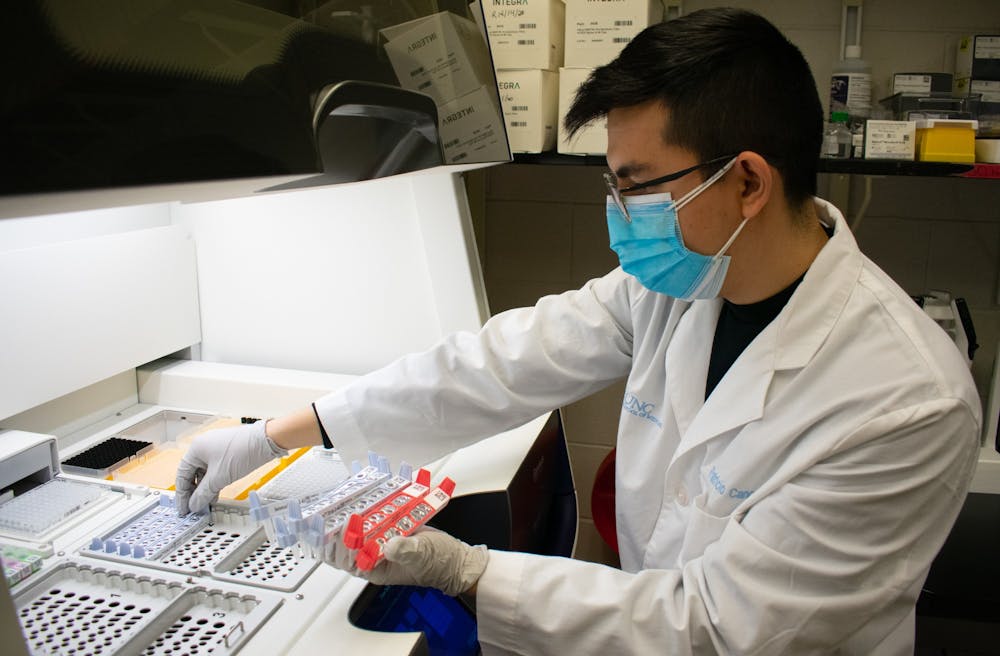While a COVID PCR test indicates whether or not there is genetic viral material in an individual sample, the technique does not reveal the specific variant of coronavirus that made a person sick.
Once a test is determined positive, the test sample is sent to a lab for sequencing to determine the specific variant of COVID-19, such as delta, alpha, omicron— or an entirely new variant.
At UNC, the Coronavirus Variant Sequencing Surveillance Program serves as a viral sequencing program funded by the NC Policy Collaboratory in partnership with the NC Department of Health and Human Services Division of Public Health.
The goal of the project is to improve surveillance of COVID-19 virus sequencing, said Audrey Pettifor, a professor in the Gillings School of Global Public Health who also serves as a principal investigator in the project.
“The goal is to improve SARS-CoV-2 sequencing surveillance for the state of North Carolina by supporting partners to report results to a centralized reporting system (GISAID) and DHHS,” Pettifor said.
The project also hopes to improve communication between groups doing sequencing and help to improve more systemic methods of genomic sequencing, Pettifor said.
While there is a nationwide effort to sequence coronavirus variants, there are different partners. The CORVASEQ team consists of multiple universities and healthcare institutions in order to capture samples from over 65 hospitals across the state and from all 100 counties, she added.
“This is a statewide initiative that really helps us look at the way we look at different things. When we started noticing 80 percent of our strains were of the omicron variant, we stopped using two of our monoclonal antibodies for treatment,” said Amir Barzin, the director and lead physician of the Carolina Together Testing Program who also serves as a principal investigator on the project.
The network is evolving every day due to its complexity, Barzin said. The team sometimes has to change lab techniques and adapt some primers so they are more effective.




